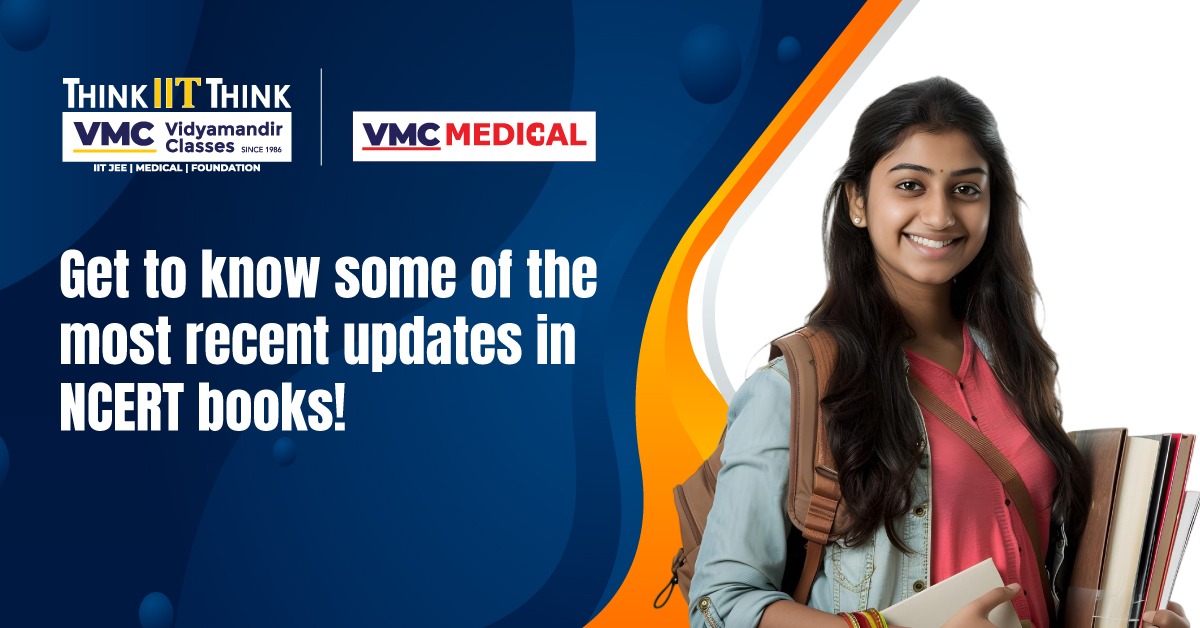Get to know some of the most recent updates in NCERT books!
 Posted On
Posted On
262 total views, 1 views today
In a significant stride towards aligning with the National Education Policy (NEP) 2020, the National Council of Educational Research and Training (NCERT) has undertaken its fourth round of revisions to school textbooks since 2014. Directed by Dinesh Prasad Saklani, the updates aim to rejuvenate educational content by integrating expert recommendations in both subject matter and pedagogy.
Mr. Saklani emphasizes that these revisions are not only timely but essential, addressing outdated content and integrating new knowledge to ensure relevance in today’s educational landscape. He stresses that the process is driven solely by academic experts without external interference, ensuring integrity and academic rigor.
One of the notable recommendations from the high-level panel focusing on Social Science curriculum is the interchangeability of ‘India’ with ‘Bharat’ in NCERT textbooks. This change reflects the linguistic diversity and cultural depth encapsulated in India’s constitutional fabric.
Moreover, the panel led by C I Isaac proposed renaming ‘ancient history’ to ‘classical history’ and advocating the inclusion of the Indian Knowledge System (IKS) across all subjects. These recommendations highlight a broader effort to reshape curriculum narratives and incorporate indigenous perspectives into mainstream education.
In line with these revisions, the new edition of the Political Science textbook for Class 12 adopts nuanced terminology, referring to the Babri masjid incident as the demolition of a ‘three-domed structure’. This adjustment aims to provide a balanced historical perspective while mitigating controversy and fostering a conducive learning environment.
The revision process has also led to the removal of several contentious sections from various textbooks. These include detailed discussions on political events and certain historical figures, reflecting a conscientious effort to streamline content and reduce the cognitive load on students, particularly in light of the disruptions caused by the Covid-19 pandemic.
Another significant update involves recent archaeological findings at Rakhigarhi, challenging previous historical narratives and prompting a reevaluation of the relationship between Harappan civilization and Vedic culture. These findings underscore NCERT’s commitment to integrating cutting-edge research into its educational framework, ensuring students receive the most accurate and updated information available.
Furthermore, the revised curriculum introduces a critical perspective on contemporary political dynamics, addressing issues such as minority appeasement and vote bank politics in the Political Science textbook for Class 11. This inclusion reflects a broader ambition to cultivate informed citizenship among students, equipping them with the analytical tools to navigate complex socio-political landscapes.
In summary, NCERT’s ongoing revisions exemplify a proactive approach to educational reform, guided by the principles of inclusivity, accuracy, and relevance. By incorporating diverse perspectives, updating historical narratives, and embracing emerging research, NCERT continues to set a benchmark for educational excellence in India. These efforts not only enhance the quality of learning but also empower the next generation with a comprehensive understanding of India’s rich cultural heritage and contemporary challenges. As NCERT remains committed to refining its curriculum in response to evolving educational paradigms and societal needs, these revisions underscore a forward-looking vision for India’s educational future. By nurturing critical thinking and fostering a deeper appreciation for cultural diversity, NCERT textbooks not only educate but also inspire future generations to engage meaningfully with their academic pursuits and societal responsibilities.




